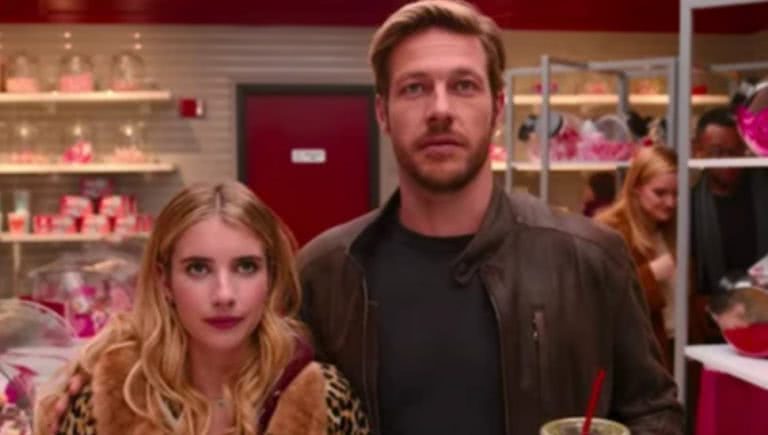Okay, I’m going to go ahead and call it: Netflix’s Holidate may just be the streaming service’s worst original movie yet.
You may wonder how I came to form such a strong opinion. Is it due to clunky dialogue or awkward jokes? Or, is it because of poor character development and a lack of chemistry between the leads?
Well, while I can confirm that Netflix’s Holidate suffers from all of these flaws, the truth behind my straight-up visceral hatred for the seemingly innocuous rom-com is far more insidious.
You see, for the vast majority of its 103-minute runtime, Holidate does a complete disservice to the exact people who I assume are its target audience: women.
Join me, dear reader, as I break down all the ways in which Holidate is sexist, misogynistic and at least 20 years out of date.
The film follows Emma Roberts’ Sloane, a woman who is apparently considered a spinster for daring to be single at the ripe old age of 28.
Tired of being judged for attending holiday events alone, she enlists the help of Luke Bracey’s Jackson, who agrees to accompany her to each family celebration on a strictly-friends basis.
While I initially warmed to Jackson due to the Australian Bracey’s status as a long-lost Hemsworth brother, it didn’t take long for his true colours to show.
Jackson is a character who considers stereotyping women to be a form of flirting, repeatedly denigrating Sloane and the female population at large from his very first scene.
He claims that women can’t help but “go mental over the holidays,” that girls have ‘crazy eyes,” and that they “get clingy because they are hardwired to attach and procreate”… all before the film is even halfway through.
I would have forgiven such eye-roll-inducing comments if this was a character who Sloane was set to dump mid-movie, upon realising he is not the man for her.
But, unfortunately for all involved, Jackson is positioned as the dream guy. The one we as an audience are supposed to root for, crush on and lust over.
I might have accepted blatant sexism from a romantic lead had this film come out in the 1990s, but in a post-#metoo era, it feels willfully tone-deaf.
Even when Jackson is attempting to compliment Sloane on their first ‘holidate,’ he chooses to tell her that her “tits look exceptional in that dress.”
As I mentioned earlier, Sloane and Jackson were not on a romantic date in this scenario and were merely attending an event as friendly acquaintances.
So, why did Jackson feel it was his right to comment on the body of someone he had only met twice?
While it is totally Sloane’s prerogative if she wasn’t offended by this moment, I can’t think of a single woman in my own circle who would embrace being objectified by a man she barely knows.
To make matters worse, it’s not only Jackson whose dialogue feels more at home in an old John Hughes movie.
Several characters, including Sloane, casually throw around the term ‘slut,’ a word I’m not sure I’ve heard said seriously outside of a year eight classroom.
On top of that, each of the movie’s female characters is completely one-note, falling into one of several all too familiar film tropes.
Sloane is the ‘cool girl,’ the one who is too “chill” to be sensitive to the way a man speaks about her. Meanwhile, her sister is a stereotypical dowdy housewife, her aunt an aging ‘maneater’ and her mother someone who thinks of nothing else than marrying Sloane off.
Don’t get me wrong, I couldn’t count the number of films I have seen in which women are reduced to mere cliches.
Hell, I still remember seeing the movie Grease for the first time as a child and being struck by how dramatically Sandy had changed both her personality and appearance to appease Danny.
While Holidate is a movie that came out over 40 years after Grease, it is still just as reluctant to treat its female characters with basic respect.
Call me naive, but I also believe the vast majority of men are now far more woke than characters like Jackson make them appear to be.
Look, I’m never expecting a masterpiece when I turn on a Netflix original movie.
But, in the very least, I do expect a film that doesn’t treat characters with outdated, offensive ideals like a dreamboat.
I expect a film that depicts women as multi-dimensional human beings (what a concept!), rather than people who can be reduced to all-encompassing statements about being “crazy” or “mental.”
I expect a film that reflects just how far we have come as a society, while showcasing how cultural views on gender have changed for the better.
Because, in the year 2020, we all deserve better.
Check out the trailer for Netflix’s Holidate (if you dare):

































